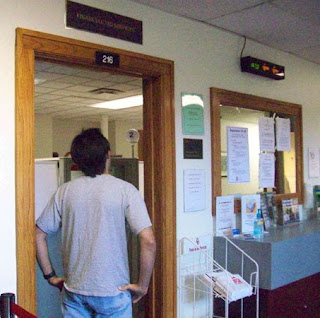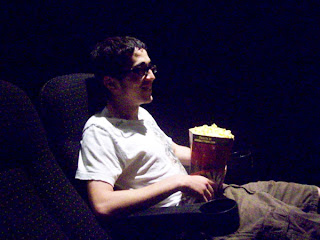 Some students may feel like they are drowning in a sea of plastic, and these cards, debit cards especially, keep pulling them under.
Some students may feel like they are drowning in a sea of plastic, and these cards, debit cards especially, keep pulling them under.By Karlie Tipton
With the holiday season fast approaching, shoppers are using debit cards over cash more and more, often resulting in overdraft or insufficient fund charges. Even with recently proposed legislation, which attempts to safeguard debit card users, there are still many reasons to think twice before reaching for one’s plastic.
Bank teller Alex Martinez deals with such charges on a daily basis.
“When a customer overdraws their account… you will get charged an overdraft fee,” said Martinez, who works at Citizens’ Bank of Edmond.
Recently proposed legislation will do nothing to eliminate these fees, but it is trying to address whether bank customers have a say in the ability of financial institutions to allow continuous overdraft fees to accumulate or to simply decline their card.
According to the government tracking site Govtrack.us, H.R. 3904, also known as the Overdraft Protection Act of 2009, is meant to protect consumers by limiting abusive and misleading overdraft coverage fees, and by providing meaningful disclosures and consumer choice in connection with overdraft coverage fees.
Currently, banks can allow customers to purchase far beyond the contents of their bank account, which leads to balances deep in the negative.
“[Overdraft fees are ridiculous! I overdrafted my account by $0.51 one time and they charged me $22… [then] a check from the government bounced, and so all the checks I wrote on that bounced and I was charged like $200 for overdraft plus all the returned check fees I had to pay,” OU senior Sarah Trine said.
However, one of the biggest complaints is not the fees themselves, but that banks are not transparent in their overdraft practices.
“There are times when customers are angry about a bank-related fee, but it is usually only because they were unaware that the fee existed,” Martinez said.
This proposal attempts to address just that issue, as it will give consumers the option to decline overdraft protection, which in the past, banks have just automatically added to accounts.
According to the Govtrack site, such abusive and misleading practices in connection with overdraft coverage fees have deprived consumers of meaningful choices about their accounts and placed significant financial burdens on low- and moderate-income consumers.
Many customers would take advantage of such an option.
“I would definitely opt out if I could, anything to save me money,” said public relations junior Ben Paston
However, this legislation will only give consumers a choice upon opening their account whether they want overdraft protection. It will not eliminate fees of any kind, including those both merchants and banks charge for returned checks, nor will it alleviate the problems that create overdraft fees in the first place.
“The problem with debit cards is that you go out and purchase a $50 item and you have $150 in your account, so the operating system freezes your account for that $50 purchase, but that purchase doesn’t necessarily come in and post to your account for two or three days,” said Vice President and CFO of OU Federal Credit Union, Gaylynn Smith.
This is often when customers incur costly fees.
“Therefore, you’re out, you check your account and see that you have $150, so you use that money,” Smith said. “Now when the $50 debit card transaction comes in, it can’t be returned as insufficient, it has to be paid, so that’s where the fee comes in.”
Some students believe this is a bit of dishonesty on the part of financial institutions in order to make a profit.
“It seems like they find a sneaky way to get their overdraft fees, like I will transfer money to cover something and they will say it didn’t transfer and charge me,” Paston said.
This claim may not be entirely false, as transactions do not actually post to a bank account in the order that one would expect.
“When I overdrafted the last time, I called the bank to ask why I ended up paying $35 for a coffee, gas, a movie ticket and a sandwich I had enough money for. They told me that a bigger charge had come through, and even though it was after all the little charges, they pushed the big check through,” professional writing senior Phillip Ybarra said.
Almost all banks post transactions in order of largest to smallest, rather than by date as many customers believe.
“They told me that ‘they had to post the big charges first, and that it was advantageous anyway because I wouldn’t want my rent check to bounce,’ but I ended up paying way more overdraft fees than I would have if they posted it by date.”
Although upset customers may sometimes feel that charges are the fault of their financial institution, Smith explains that in the end, it is the responsibility of the account holder to be aware of their own finances, and not rely on the often inaccurate, temporary balance that an ATM or computer screen may show.
“Overdraft fees are a result of someone not tracking the amount of money that they have, therefore, I feel that overdraft fees can always be accounted for,” Smith said. “You have to know how much money you have.”



